Blue Ocean Global Technology in conversation with Erik Syverson, America’s leading internet and technology attorney. Erik takes us through different points of his journey, from his vision behind Syverson Law Firm, what her looks for in a case, and his experiences while working with a wide and diverse client base.
Blue Ocean: How did you become one of the most experienced and sought-after internet defamation lawyers? Tell us about your journey.
Erik: I graduated from the University of Michigan in 1998, and California was really the place to be. It was the high-water mark of the tech boom of the 90’s. I wanted to be in an innovative economic climate with lots of opportunity. I saw law school as the best way to use my talents to gain exposure to the new digital economy. I moved to Los Angeles and enrolled at Loyola Law School, graduating and passing the bar exam in 2002. A law professor of mine secured a job for me at a high-end, small, boutique litigation law firm. The firm had a specialty in marketing law, in particular direct mail marketing and telemarketing. At the time, the FTC was suing many of these customers for violating regulations such as the Telephone Consumer Privacy Act, which prohibited telemarketing calls and fax solicitations under many circumstances. I gained a lot of experience very quickly. I received incredible hands-on mentorship.
By 2006, I already had won a seven figure trial verdict. Once I hit that milestone my career really took off. There is no experience like trial experience. I do not consider a lawyer to be a lawyer until he or she has conducted a trial. It is an immersive experience. It taught me how to be prepared, handle stress, and think on my feet. These are the building blocks for any successful lawyer, no matter the area of practice. With these fundamental skills in place, I was able to begin attracting my own clientele. At the time social media companies, including Facebook, myspace, Twitter, Google, and YouTube had started to become viable, large businesses with a global scope. I decided to run my practice like these tech innovators. So, I looked for a hole in the legal market. I googled “internet attorney” and was surprised to find that no law firms were marketing themselves as having expertise in this area. So, I set out to build a different legal model, a model where clients would find me online rather than through traditional word of mouth referrals. I marked out my territory online. I taught myself how to build my own website, which I still have to this day. I began to run Google Adwords campaigns, and people started to call and hire me.
Within three years I had a $500,000 book of annual business, and larger firms started to recruit me as a partner. I needed a larger platform and smart associates, so I moved to a very high-end trial firm in 2011 as a partner and ran a cyber liability practice. In my first year my practice passed the $1,000,0000 mark, which is kind of like the holy grail in law. As the years passed I refined my practice and continued to narrow my focus to online defamation work. After stints as a partner at a few other firms, I decided in 2020 that the flexibility of having my own high-end practice worked best for me. Most of my clients are high-net-worth individuals, so I don’t rely on the massive volume of cases that most law firms require. Most law firms bill clients by the hour, which requires a massive volume of cases, whereas I bill flat fees, which does not require high volumes of cases. I can be very selective about the cases I handle. So, in a way, my career has run the gamut and come full circle. I started out at a small firm and I’m back to being a very small firm. I think every lawyer benefits from being involved in various types of firms by being exposed to numerous business models. Then, the lawyer can pick the model that works best for their lifestyle.
Blue Ocean: How do you define and describe internet defamation to your clients?
Erik: Geographically, internet defamation takes place on the internet. Typically, it is located on a social media site. However, we also see defamation take place via email, text, or traditional media. Internet defamation is no different than what I refer to as brick and mortar defamation. We just typically have access to much better liability proof when defamation occurs online. Defamation is an unprivileged false statement of fact communicated to at least one person with a defamatory meaning that causes harm to one’s reputation. Written defamation is referred to as libel, whereas oral defamation is referred to as slander. It’s almost easier to define defamation by focusing on what is not defamation. Opinion and hyperbole are not defamatory. Most cases come down to this distinction. Name-calling is often just opinion or hyperbole and not actionable. Also, a false statement of fact that does not have a defamatory meaning is not actionable. If someone stated on twitter that I can dunk a basketball, that would not be defamatory even though it is a false statement of fact. Finally, a strong defamation case does not need any context or background. It is what we refer to as per se defamation. In California and many other states, statutes define what is or is not defamation per se. The most important feature of defamation per se in California is that it does not require proof of any damages. Thus, once liability is established, a judge or jury could award any sum for emotional distress. It could be $5 or $5,000,000.
Blue Ocean: What are the core pillars or boxes that need to be checked in order to file a case and, in your opinion, have a reasonable chance for success?
Erik: It must be defamation per se. So, it must be a statement accusing someone of having committed a crime, having a sexually transmitted disease, engaging in untrue sexual behavior, or of engaging in behavior harmful to one’s occupation. Basically, any defamation case that requires a lot of explanation is a loser. It has to be something simple and straight forward to survive the many defenses available. My personal rule is that if someone cannot explain their case to me in 60 seconds or less, then it’s not a winner.
Blue Ocean: How do you balance between serving plaintiffs and defendants?
Erik: To be honest, I don’t find a need to balance. I am happy to work with whoever is able to pay my fee. Some practices require allegiance to one side, but not mine. I’ve represented large insurance companies and their policyholders on the defense side, and then I file a plaintiff’s case and see the same insurer on the other side. With an area like defamation that has so many landmines, it really helps to represent plaintiffs and defendants so that you understand the issues from 360 degrees.
Blue Ocean: You take an innovate approach to evaluating each situation on a case by case for viability, and how you can potentially represent a client. Describe your process.
Erik: First and foremost, I only want to represent reasonable people with a clear goal to be achieved. Litigation is serious business. Many people who contact me do not possess the emotional stability needed for litigation. So, I really want to know my clients, who they are and what they want to accomplish, because litigation is war and I don’t like going to war with unreliable soldiers. My general rule for clients is that I’m paid to worry about the case for them. They need not be concerned with the law. That’s my job. My clients need only communicate timely with me and provide information. The rest is up to me. Having handled over 100 internet defamation matters, I have a large reservoir of prior experience to draw upon. I’ve learned a lot of lessons and represented, for better and worse, a lot of different types of people.
Blue Ocean: Syverson Law offers experience agnostic of state boundaries. How has your flexible approach allowed your firm to flourish relative to those who try to serve a single or within regional state boundaries?
Erik: I practice around the globe, having had clients and cases on every continent. It is true that my bar license is in California, however that is no hindrance to doing one-off cases wherever I need to be. I’ve handled cases in almost every state in America. Keep in mind that we have federal and state bar admissions and they are separate. If I have a client that needs to file suit in Texas, then I just need to retain local counsel to sponsor my admission to the court on a pro hac vice basis. Pro hac vice just means my admission is limited to that case only – not a general license to practice in Texas. Because the internet runs through California, I’ve never had a need to open offices in various states. Plus, California has by far the busiest court system in the world, so there is more than enough business in California to justify a California-focused practice.
Blue Ocean: How do state laws and federal laws intersect with respect to internet defamation lawsuits? Please share your perspective precedence and how you advise clients on the very same.
Erik: I find this is the source of much confusion. Federal cases typically concern First Amendment issues. The First Amendment is federal law, as are the cases interpreting its scope and application. The First Amendment generally applies only to the government’s regulation of speech. My cases are typically between private citizens or businesses, so there is no federal component. Defamation is typically a creature of state law. That means that each state has different defamation laws and cases interpreting those laws. 99.9% of my cases are filed in state courts, with 95% of those being filed in California. Half of my cases are filed in the Los Angeles area and half of my cases are filed in the San Francisco bay area. So, I’ve taken the early morning commuter plane to San Francisco, San Jose, or Oakland more times than I can count, although we no longer appear in court physically thanks to the Coronavirus. Those days are over.
Blue Ocean: Is there a landmark case that was the tipping point for your career and commitment to this niche area of practice?
Erik: The case that stands out is a jury trial I won for a law firm partner who had been anonymously defamed by email. I was able to subpoena the needed evidence to prove the identity of the defendant. I introduced this evidence at trial and won one of the first John Doe jury verdicts for internet defamation. My client sustained no financial damage. However, because it was defamation per se, he was awarded emotional distress damages. Additionally, because the defendant had lied about not authoring the emails and hid his identity, the jury awarded punitive damages. After the jury read the verdict, my client gave me a big hug with tears streaming down his face and whispered thank you into my ear. I’ll never forget that moment. It cemented how important this practice area is and how important my expertise is for people living in the digital age. I knew from that day forward I had a gift for this area of the law. It’s like solving a mystery. I just follow the evidence where it takes me. It’s a bit like being a digital Sherlock Holmes or James Bond. It’s very interesting and rewarding, whereas most lawyers are quite miserable in their practice, to be honest.
We Value Reputation,
Let’s Rebuild Yours.
A High Reputation Comes With a Cost, Put Value on It.
Blue Ocean: Our collaboration with your firm provided our team a unique understanding of the depth and breadth of your experience. Kindly provide some context on the volume and diverse nature of your success in growing Syverson Law over the past twenty years.
Erik: I applied my traditional Midwestern values to a new realm of business. When I started there were no lawyers specializing in defamation, but I saw an opportunity. At the time, I was relatively young, and a product of the first internet generation. So, as new services like Google and Facebook came online, I was using them. I predicted that even though there are a lot of great aspects of such services there is a dark side to so much open communication.
Furthermore, defamation is a very complicated area of law. So complicated that attorneys are baffled by it. Nobody should ask for advice regarding defamation from a general litigator as they will likely receive horrible advice. I get calls from litigants almost daily that have been put in a very bad position by a general business litigator. There are a lot of landmines in a defamation practice, such as various anti-SLAPP laws. So I just stayed patient and focused over the years and built my reputation the old fashioned way, by winning cases. I guess you could say I built my practice with a blend of new digital marketing and old-fashioned results in the courtroom. The digital marketing aspect took much less time to achieve, so I had a head start in the digital space, but after a decade of courtroom success my business settled into a 50/50 split between people finding me online and old-fashioned referrals from other attorneys/clients who knew of my prior successes.
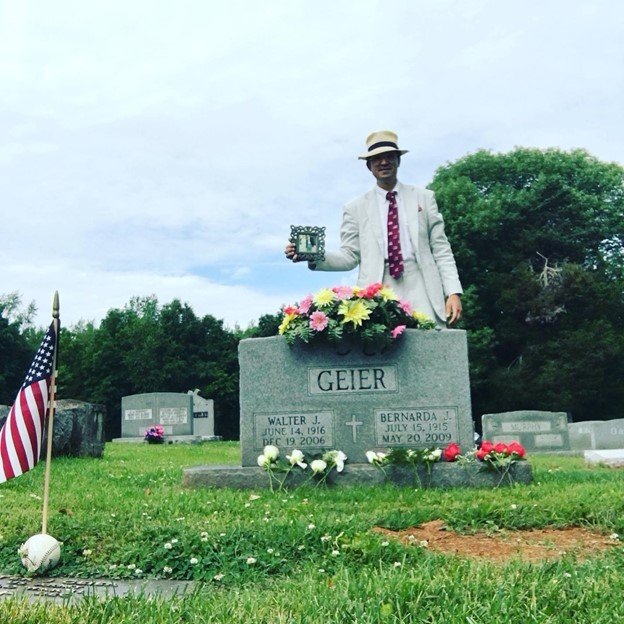
Blue Ocean: You have worked on some of the most prominent cases in Internet Defamation law history, including cases for celebrities. What makes those situations both challenging and similar, relative to ‘normal’ ones?
Erik: For me, there really is no difference. Los Angeles is the heart of the entertainment industry so it is very normal in an everyday sense to interact with celebrities either casually or professionally. After a while, it becomes very normal. In a defamation sense, the real challenge is that celebrities, as public figures, have less rights when it comes to defamation and privacy. That makes it very challenging legally to succeed, but I manage to navigate those additional hurdles.
Blue Ocean: Internet Defamation is clearly a growth area. Some attorneys consider it one their core areas of expertise. You take a different approach in that it is your exclusive focus. Why so, and how does this benefit your clients?
Erik: Nobody has had more cases than I have and I’ve actually won jury trials for defamation. So I can draw on a huge library of past experience in order to deal with various factual and strategic situations.
Blue Ocean: You serve a wide range of clients in confidence. Describe some of the types of people and organizations you have represented.
Erik: Multiple Academy Award-winning actors, some of the most well-known people in the world. Several CEO’s of publicly traded companies. A very famous hedge fund owner. Various television and movie producers. Dozens of lawyers and doctors. A national hotel chain. A large tax resolution company. And large insurance carriers offering cyber liability policies. So it’s really been a mix of public figures and private professionals for the most part.
Blue Ocean: We have many clients who ask about or are considering a lawsuit. They can be a bit too eager without clarity or understanding on the process or validity of their case. You strive to empower people by making the most informed decisions and we often recommend your services. What is your message to those clients?
Erik: Litigation, especially defamation, is a jungle. Without an experienced guide, the jungle will likely eat you alive.
Blue Ocean: As an industry thought leader, you strive to educate the public on these issues and serve as a comprehensive resource. Why is education and sharing perspective with national audiences so important to you?
Erik: Because defamation has become a kitchen table issue. Anyone can defame anyone. Everybody is exposed, no person is safe from reputation assassination. When I graduated law school, defamation was a dead practice area. It never happened because there was no social media. We had a few networks and major newspapers with an army of lawyers and tremendous constitutional protections. So it was a fool’s errand to sue for defamation in those days, because defamatory material never got published.
Blue Ocean: One of the reasons we prioritize partnering with your law firm is that you won’t take on a client unless you feel you have a reasonable chance of winning. You have even accepted cases where you only receive compensation if the verdict is reached. Explain your rationale for this approach, which we have found to be unique and compelling.
Erik: I have a completely different business model than most law firms. Most law firms charge by the hour. They are incentivized to be inefficient and over-lawyer cases. In fact, their very survival depends on it. It’s a dirty little secret in our industry. My fees are honest and straight forward. I charge flat fees for most cases so my clients know what they are in for, costwise, before they jump into a case. Litigation is an uncertain business, but I can at least provide cost certainty to my clients. Additionally, I’m incentivized to get a result as quickly and efficiently as possible. Whether I work 10 hours or 1000, I get paid the same. And if it makes sense, I do take a contingency fee on some of my cases depending on the outcome. Most firms cannot do this because they have onerous committees that must approve such fee structures. I don’t have to answer to any partners – I’ve been there and done that and it’s not much fun. The buck stops with me at my firm.
Blue Ocean: What are your hobbies and passions that you pursue outside of your rigorous mandate of professional commitments?
Erik: I am a sports nut. It’s embarrassing, but at 45 years of age I’m still like a kid watching my favorite teams. I grew up in Wisconsin, so I’m a devout Green Bay Packers and Milwaukee Brewers fan. I am fanatic about my alma mater’s teams at the University of Michigan. I’ve always been a big traveler, not just for work but for leisure. My ex-wife is from Brazil so I’ve spent a lot of time on beaches throughout Brazil. I don’t know why more Americans don’t visit Brazil. The beaches are so much more beautiful than Hawaii or Mexico. The food is better too. France is another favorite, beyond Paris I have visited the Loire River Valley many times. I’m quite a wine aficionado so I’ve also enjoyed time in Burgundy. I have a wonderful Labrador Retriever named Kramer. He lives with me and my daughter lives with her mom. Although divorced, we have remained very tight and share parenting duties in a very cooperative way. I’m a bit reclusive and quiet while my ex-wife, being a typical Brazilian, is more the life of the party. I love playing golf and typically play one or two times per week. I have a part time hobby dealing vintage classic Savile Row bespoke clothing. I grew to really appreciate fine tailoring throughout my decades in courtrooms. Tailoring is a bit of a dying profession, so I’m always happy to find and preserve those rare quality garments that can still be found in charity shops across the world. It’s like finding diamonds, or panning for sartorial gold. I’m always amazed at the wonderful suits given away to charity shops. Of course, trial lawyers are about the only people on the planet wearing such garments in today’s business casual atmosphere.
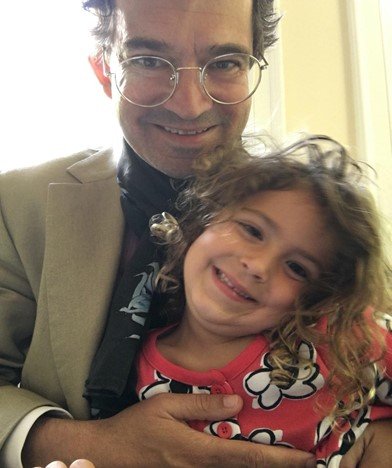
To learn more about Erik or seek his counsel:
Mr. Erik Syverson
2288 Westwood Blvd #212
Los Angeles, CA 90064
Phone: 310-270-6000
Email: erik@syversonlaw.com
Do you have a personal or professional story that can inspire other people into becoming the best version of themselves?
You are welcome to share your journey with our audience..
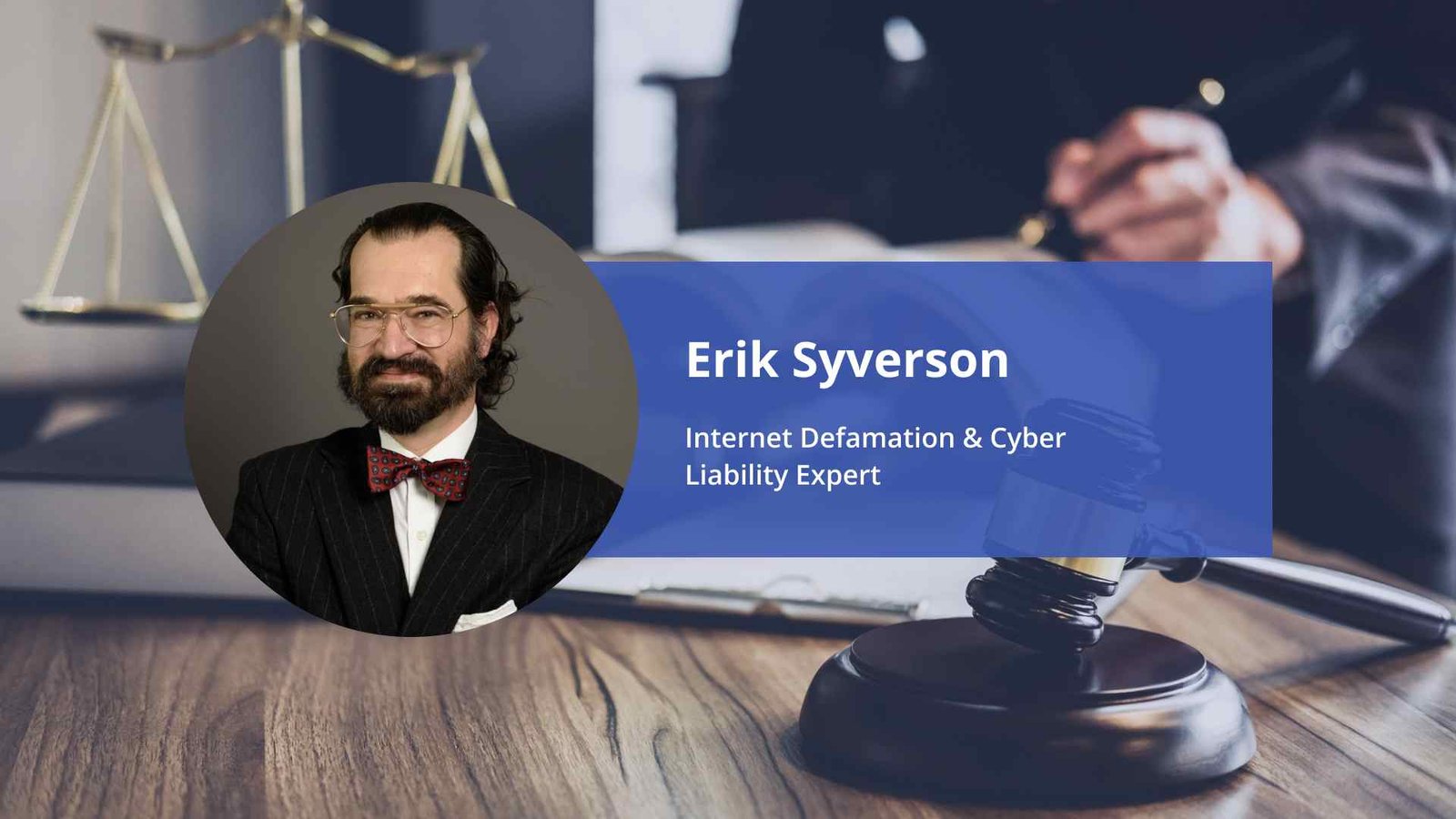

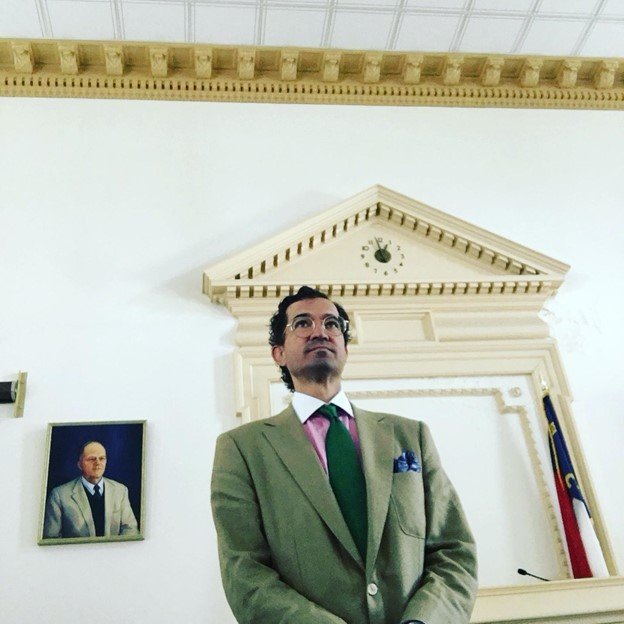
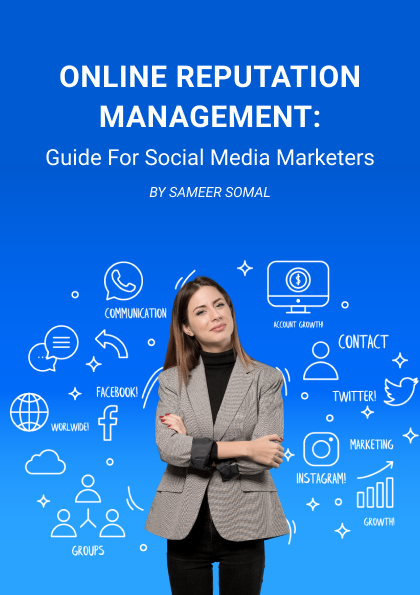
Comments are closed.